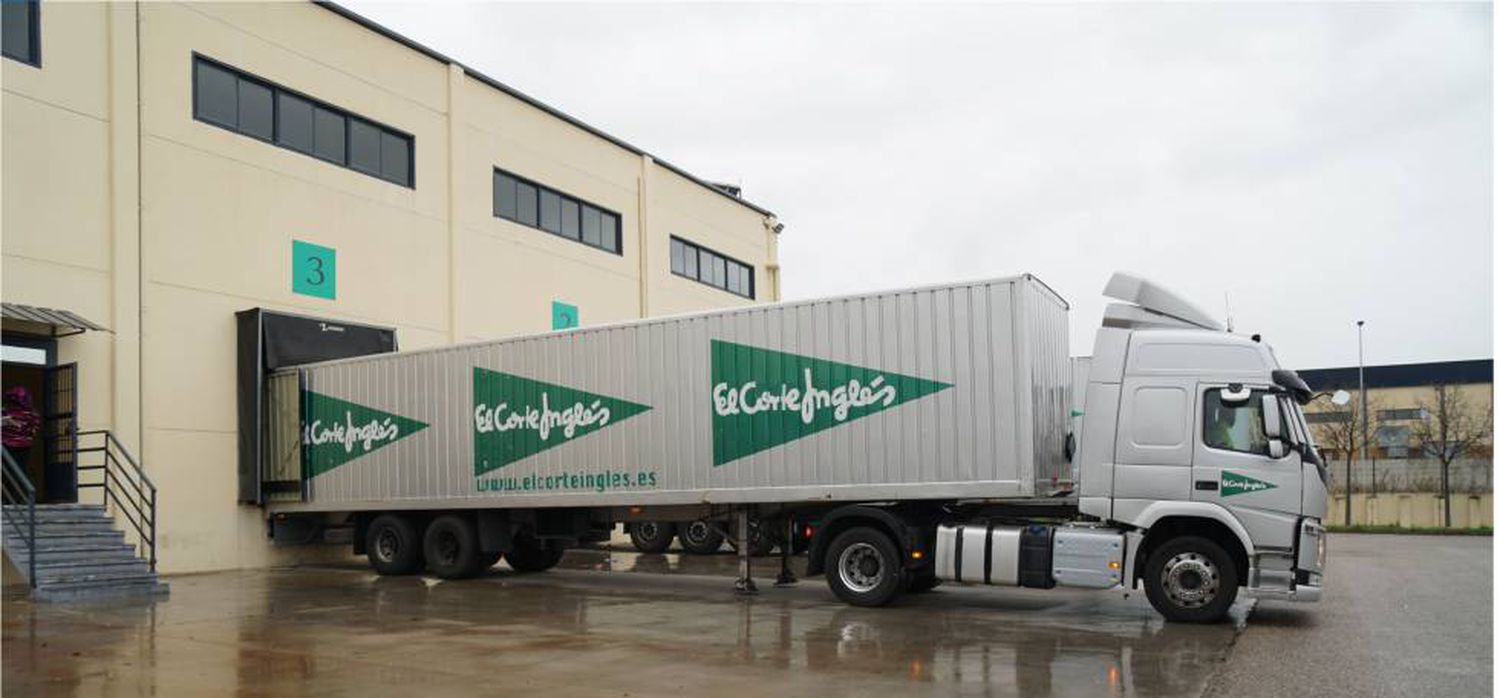El Corte Inglés is going to launch a new business unit dedicated to logistics with which it hopes to stand up to Amazon in Spain and take advantage of the pull of electronic commerce.
The department store chain will take advantage of and strengthen its current logistics and transport infrastructure, even with agreements with other specialists, and offer it to third parties, to become its logistics operator from start to finish, from the production plants to, if necessary , the customer’s address.
Thus, it expects to triple the volume of the logistics business and invoice up to 1,200 million euros.
The idea is to take advantage of the logistics infrastructure that the group already has, which is the one that provides service to its shopping centers and supermarkets, according to sources from the company headed by Marta Álvarez.
It is a division in which around 5,000 people work, which has 1.2 million square meters of surface in 50 “central and regional” warehouses, in addition to the warehouses of its points of sale in Spain and Portugal, between those that travel a thousand trailers daily, in addition to other means of transport that deliver to stores and homes.
These logistics services are valued at around 400 million (that’s what El Corte Inglés would spend if it had to hire them outside), according to sources familiar with the project.
The department store group aspires to compete with Amazon. The American giant has almost thirty logistics centers in Spain, from where it distributes both its own products and items on behalf of third parties that it sells through its platform.
Logistics and distribution have become a key factor with the unstoppable boom in online commerce. And large companies seek to make the most of this business, managing everything from product storage to distribution to stores or delivery to customers’ homes.
With the new business unit, the group chaired by Marta Álvarez seeks to replicate successful operations such as the creation of the travel agency or the insurance brokerage: both divisions began as activities to provide internal service, but they were acquiring volume and, taking advantage of the experience gained,
According to the plans of El Corte Inglés (ECI), if all goes well, the logistics division would become an independent company in one year.
The plan, which has been working for a couple of years with the support of the consulting firm Kearney and Goldman Sachs, is to reinforce this entire network – the workforce would be doubled and five food logistics platforms would be built in Spain like the one that already works in Coslada (Madrid), with different thermal zones— and open it to be able to provide service to third parties and fully manage the logistics of other companies.
“If other foreign customers were incorporated, the volume of logistics business of El Corte Inglés could multiply by three, up to 1,200 million”, explain the mentioned sources. The project is led by Francisco Bernal, a manager with experience in supply chains and operations at DHL, Prosegur and SEUR.
El Corte Inglés frames the project in the growth of online sales, growing in double digits and has accelerated even more with the pandemic. It is intended that the project also serve to make some real estate assets profitable.
Although some suppliers have already asked the group to take charge of the integral management of their logistics, ECI intends for the new company to start offering them “omnichannel logistics adapted to their needs”, which would include from the basic transport of products to facilities or El Corte Inglés stores to, if necessary, international air transport services or logistics for special products, such as luxury products, which need greater control.
To do this, ECI contemplates agreements with other non-competing companies that provide experience in specialized services and even the acquisition of one, if applicable.
Pilot tests of what would be the new unit are currently being carried out, reinforcing logistics in some areas that are particularly strong in digital commerce. The fourth quarter of the year (which ends on February 28), the strongest of the year in purchases, will be key for the future final design of the unit.
El Corte Inglés has been searching for new sources of income for months, a process that the pandemic has accelerated after dealing a strong blow to the sales of the retail division (retail, the most important of the group, with revenues of 12,000 million in 2019) and, above all, to travel (which has lost 90% of its income this year) .
It recently signed an agreement with MásMóvil to enter the alarm business. In that search, the services subsidiary SICOR is key, with which it also intends to enter into businesses such as security or cleaning.

The Great Writer and The Passionate Poet As Well, He Graduated from University Of Florida in Journalism and Brad have around 12 years of experience in news and media section.
